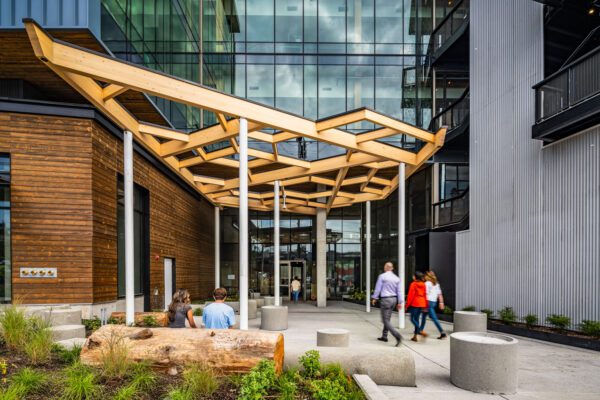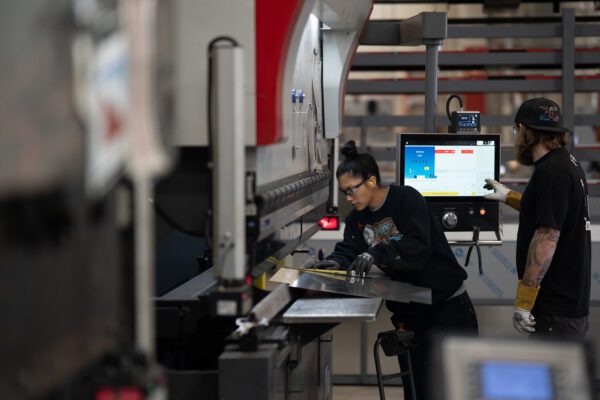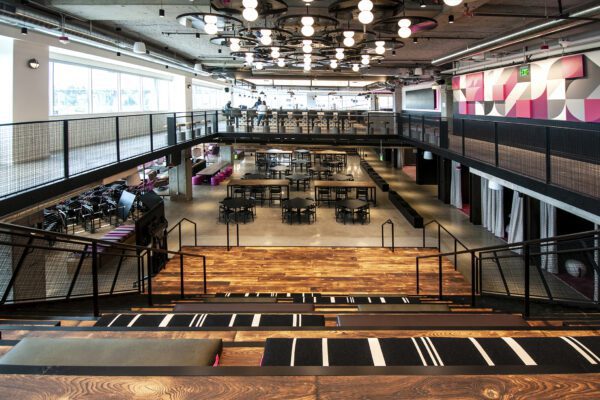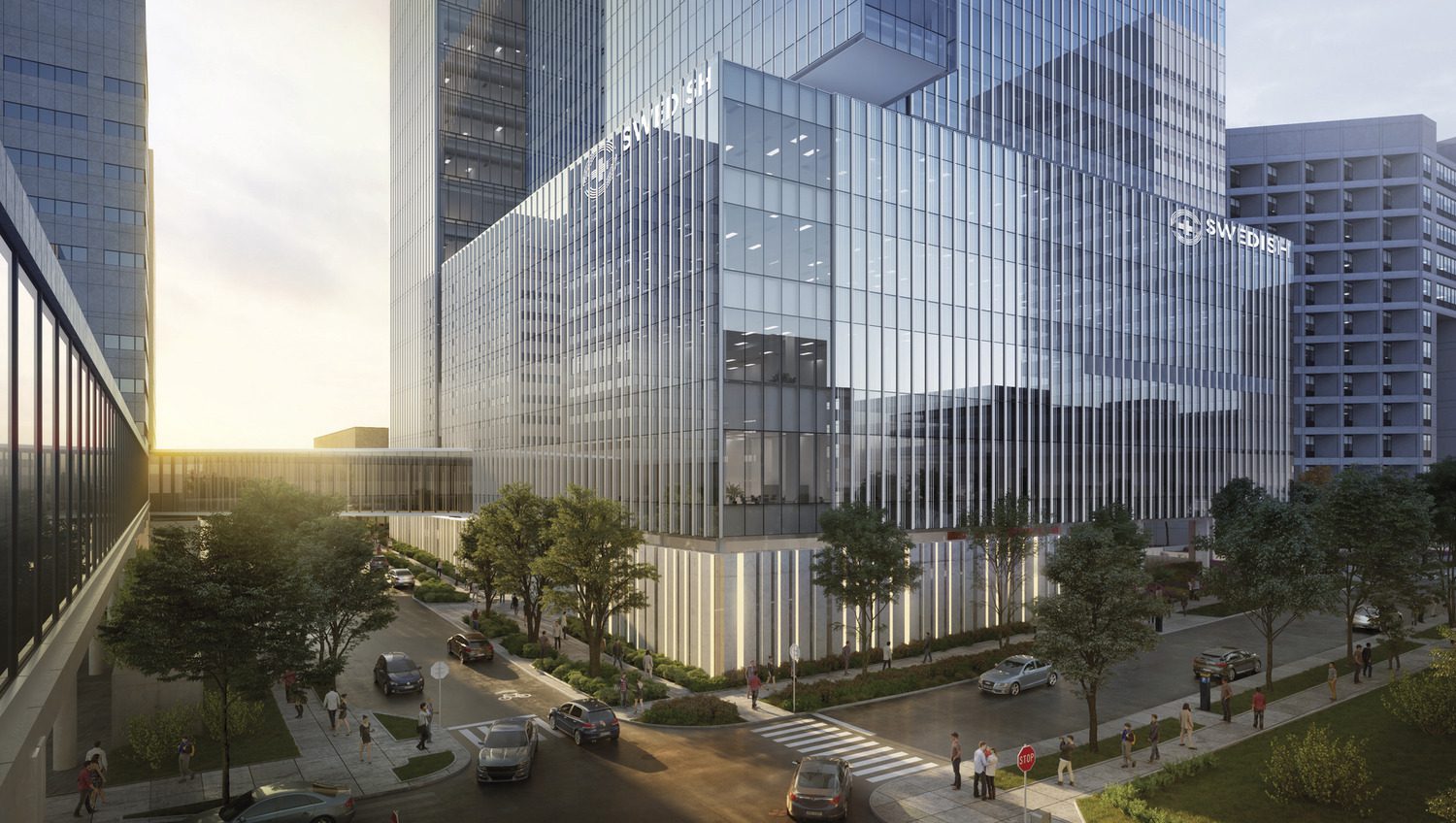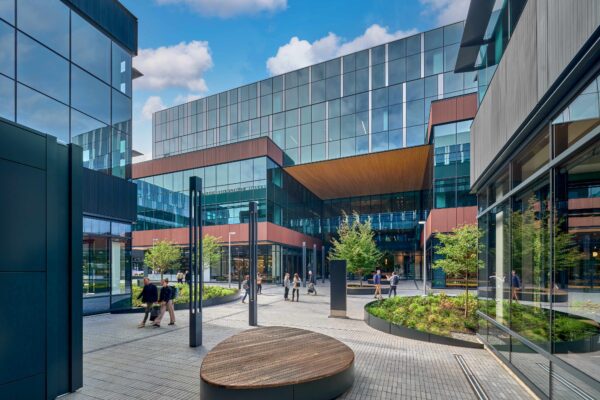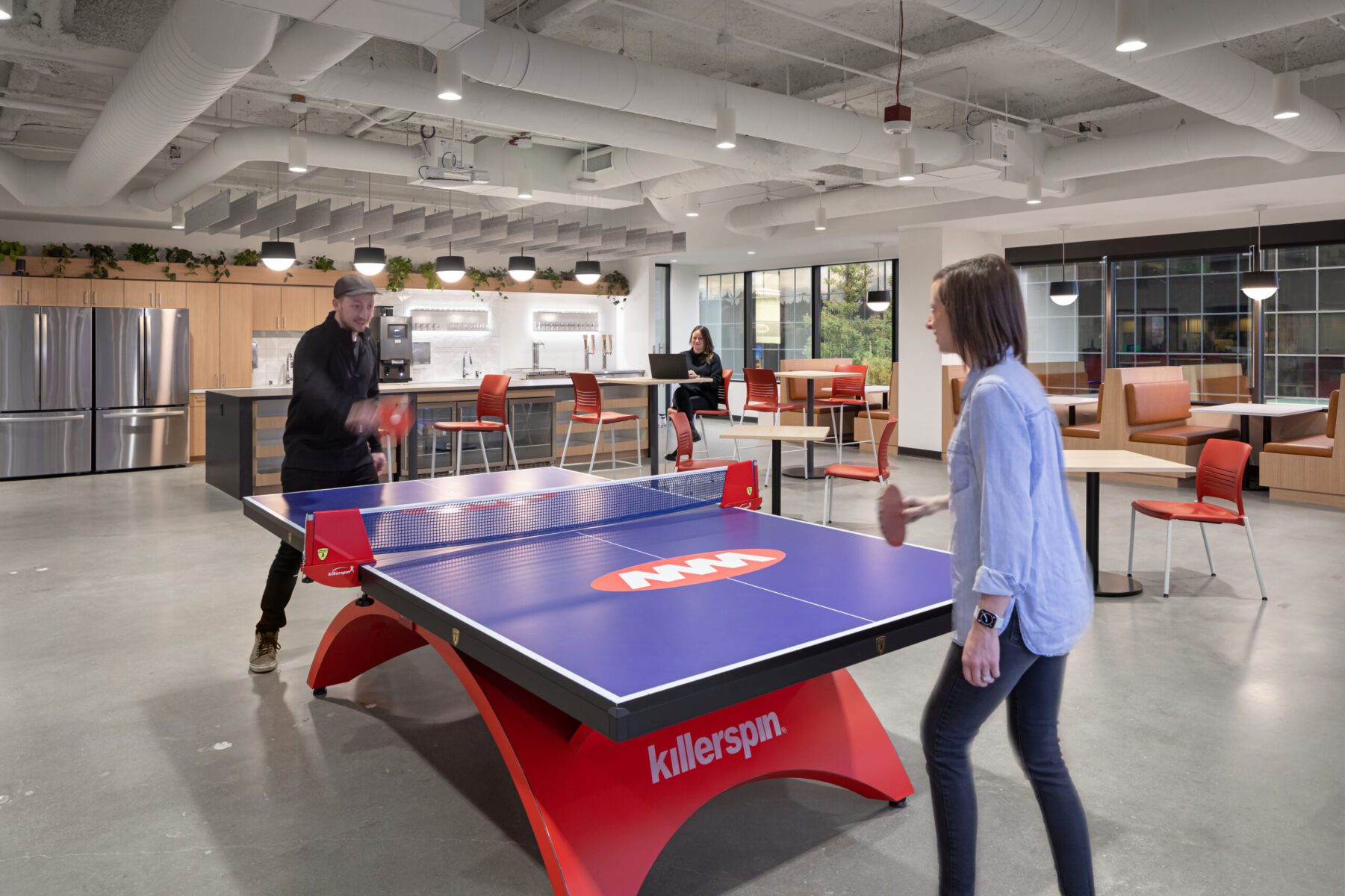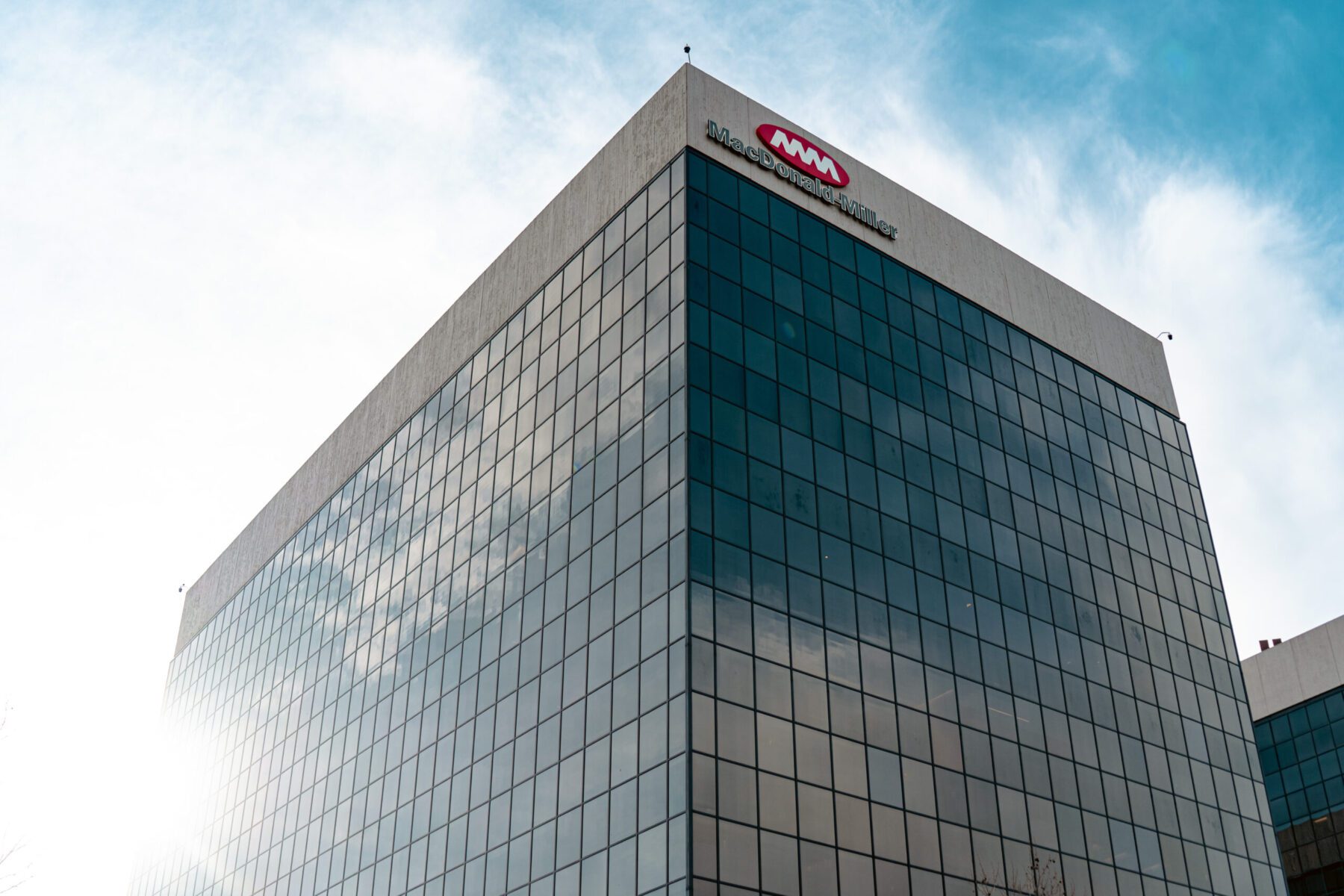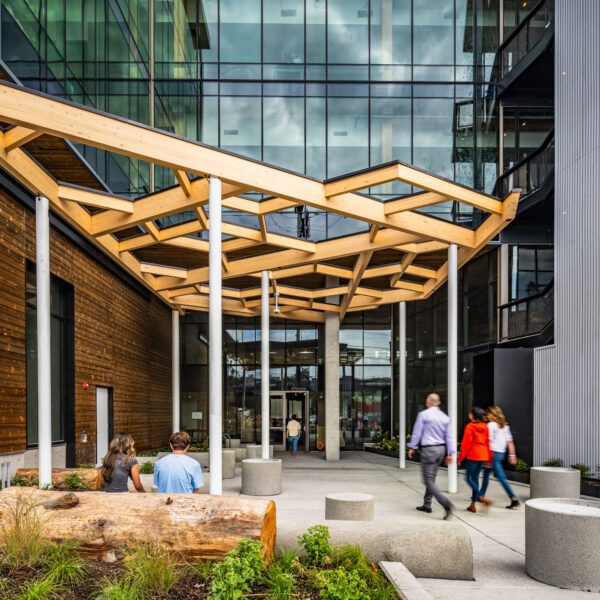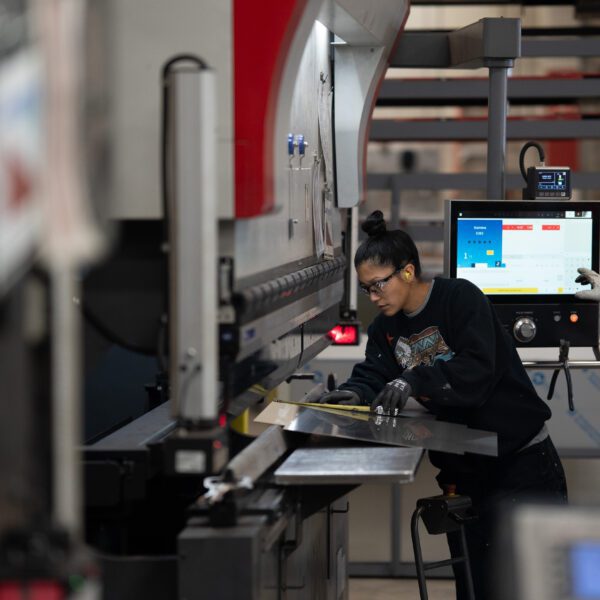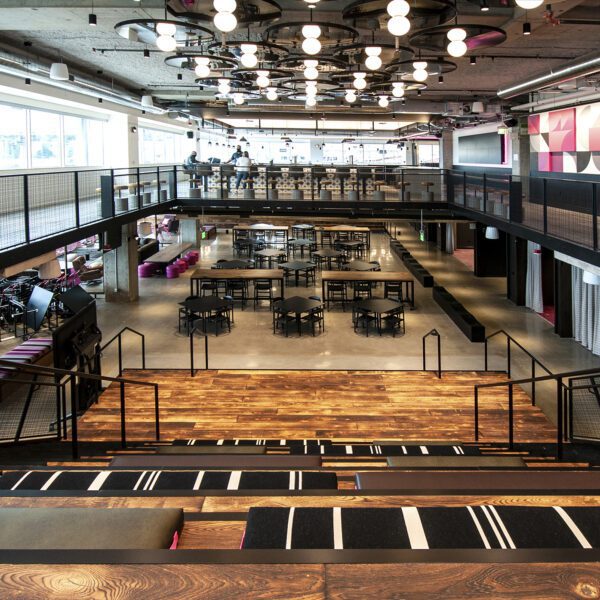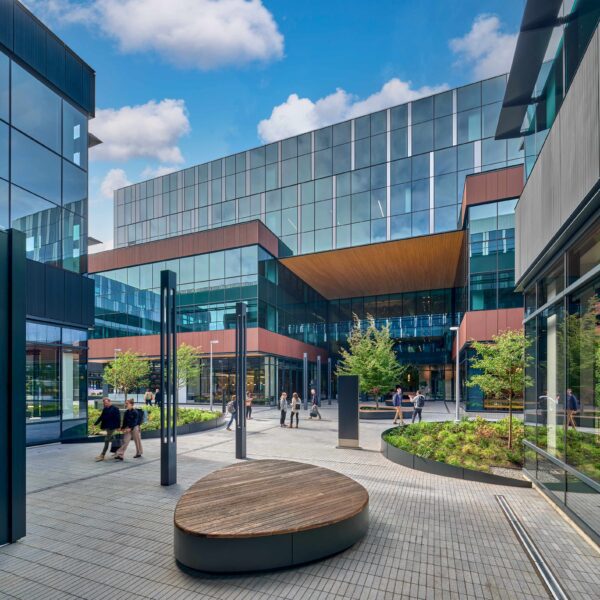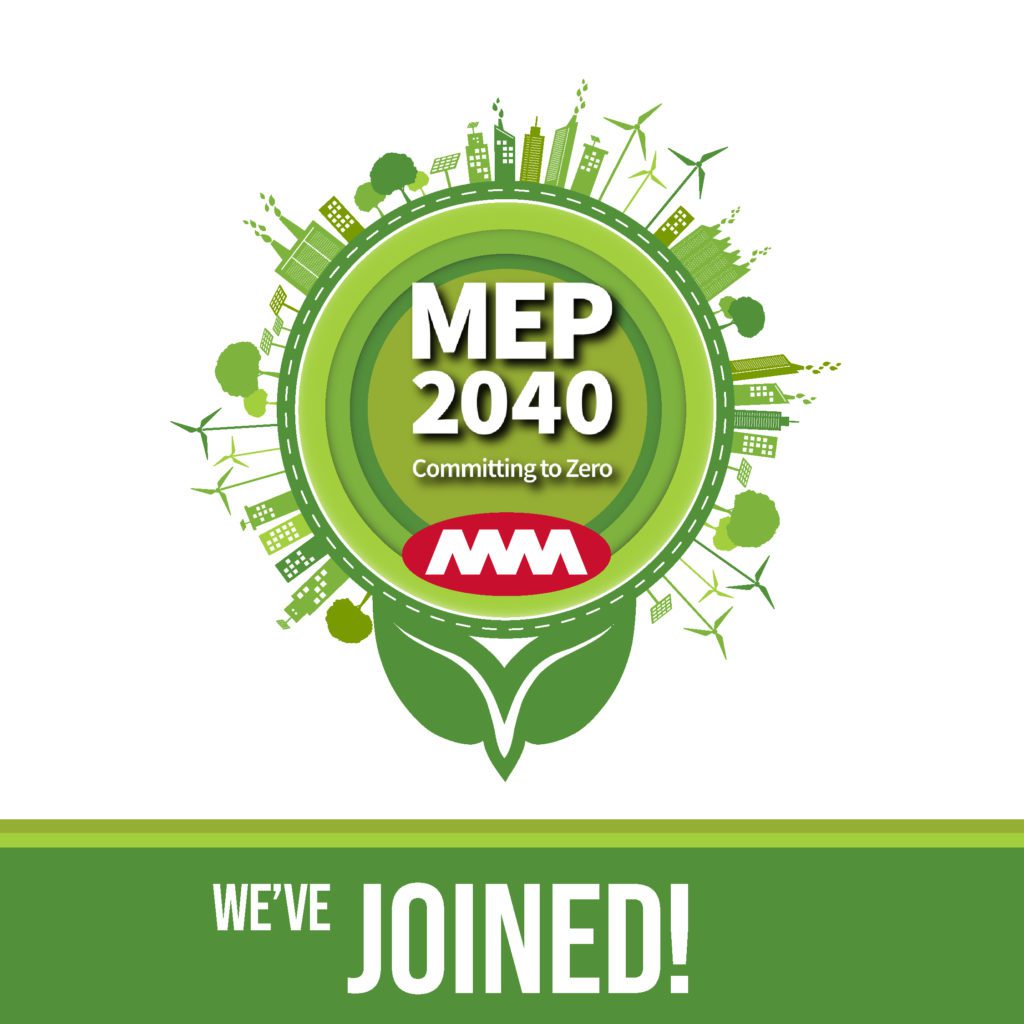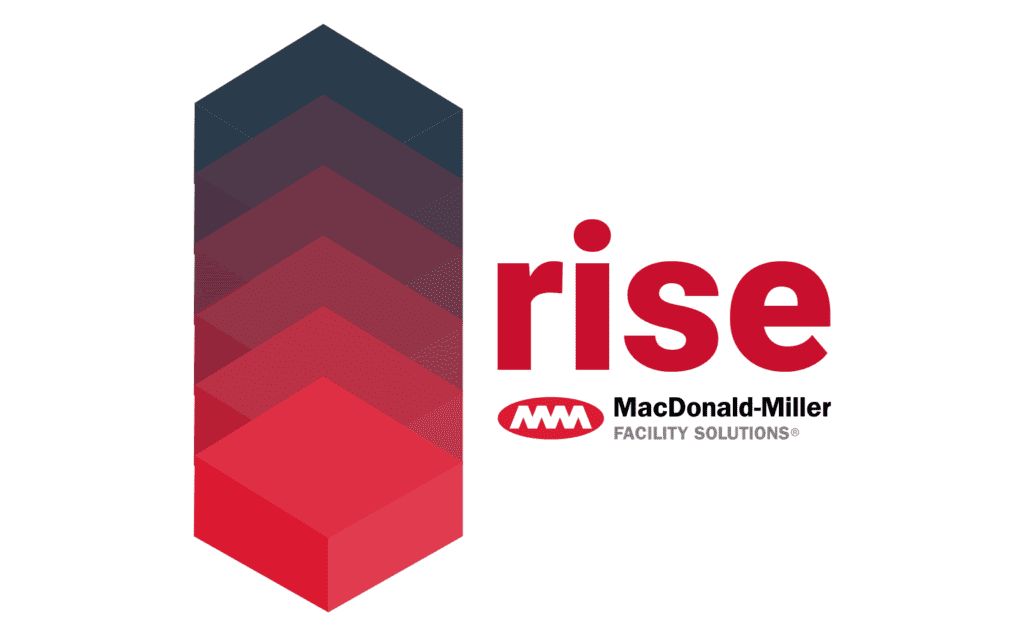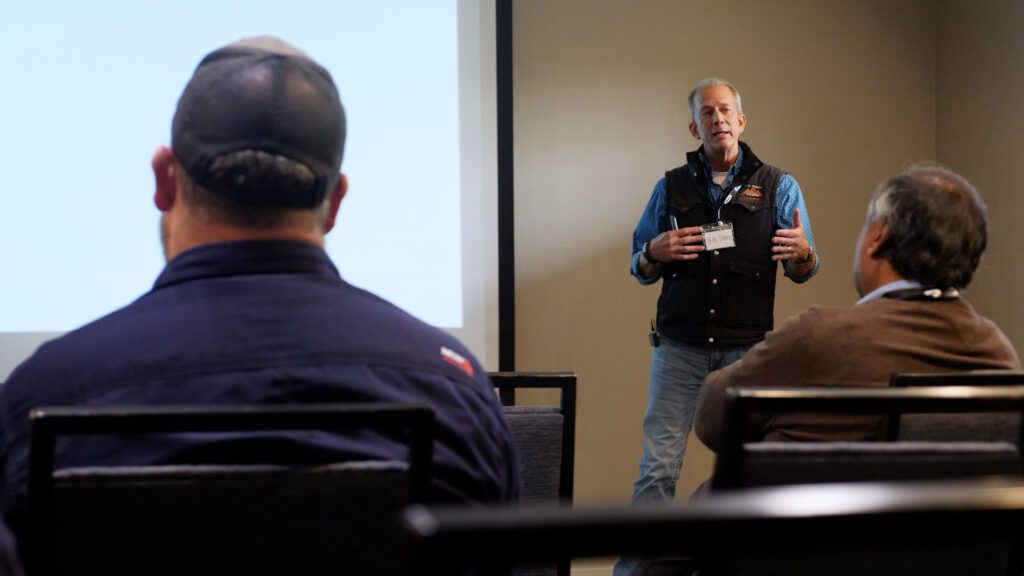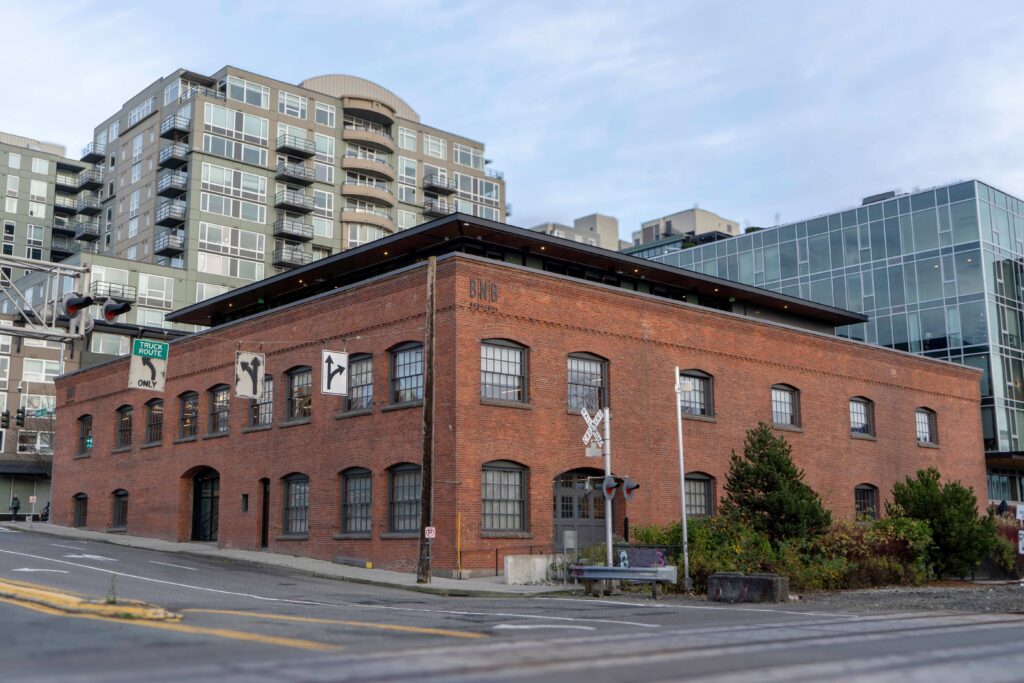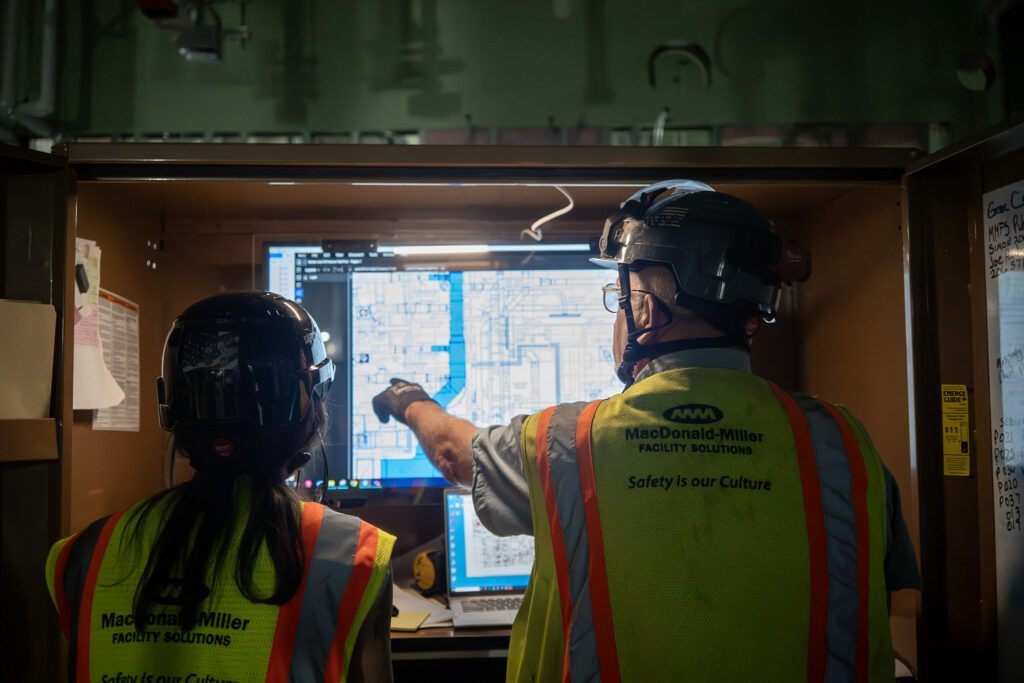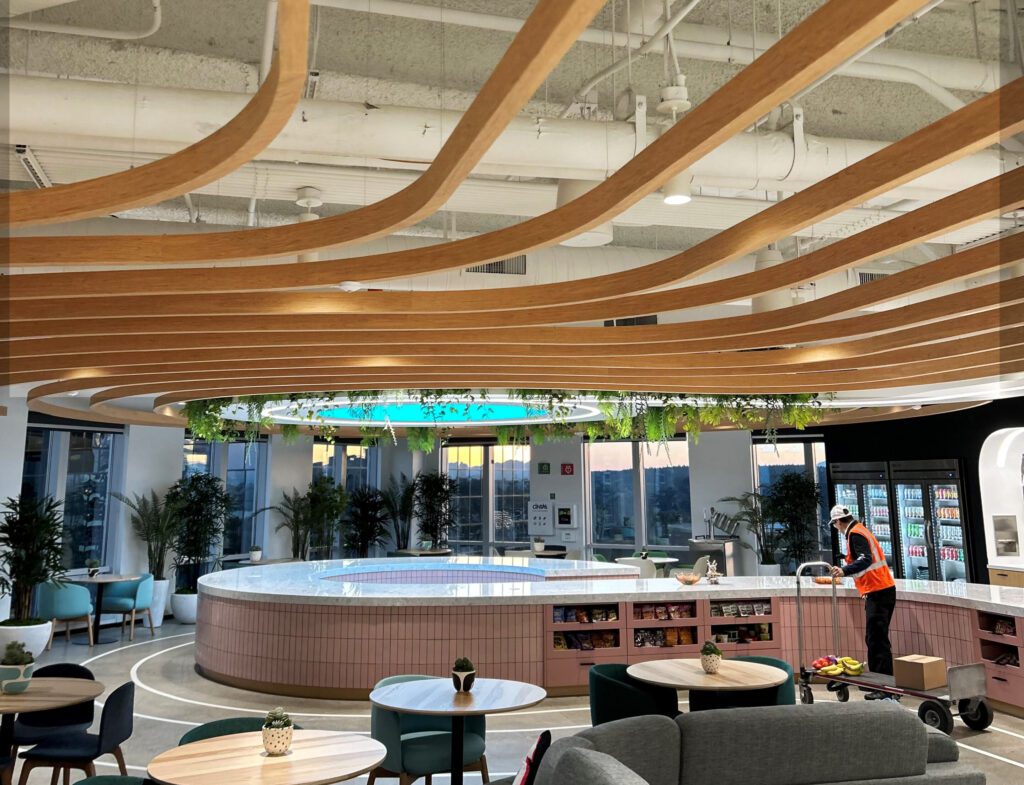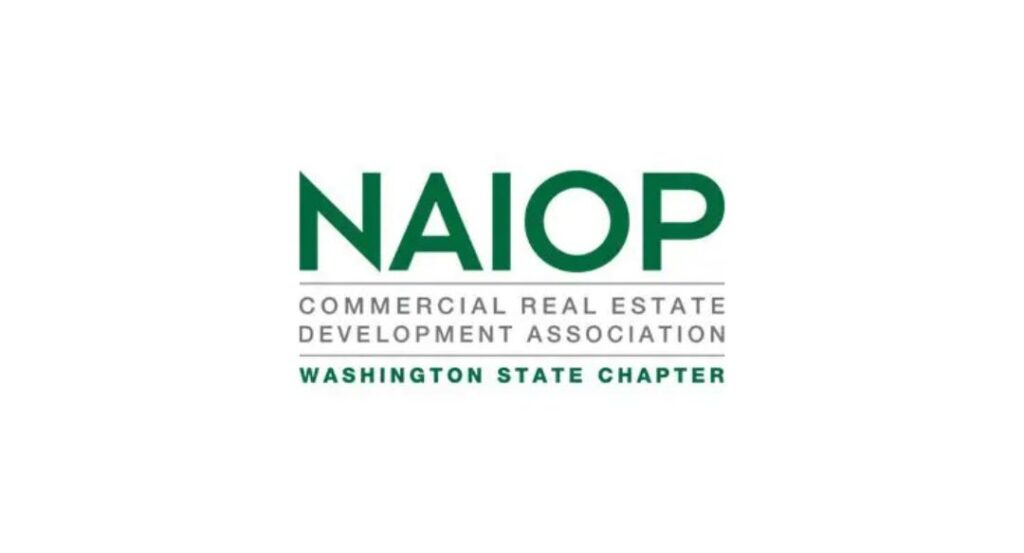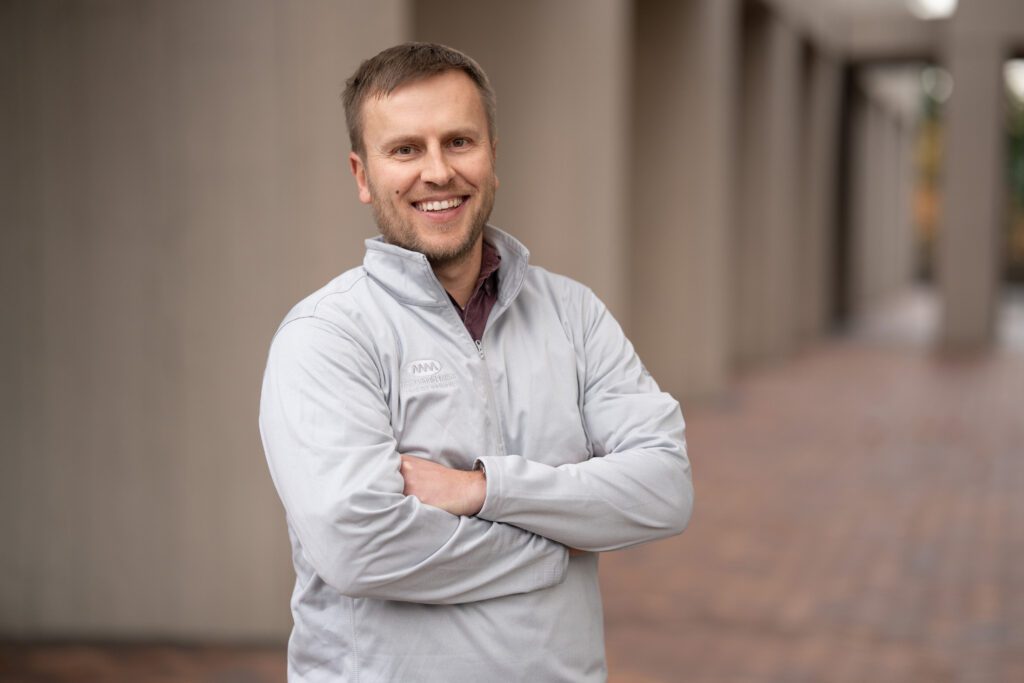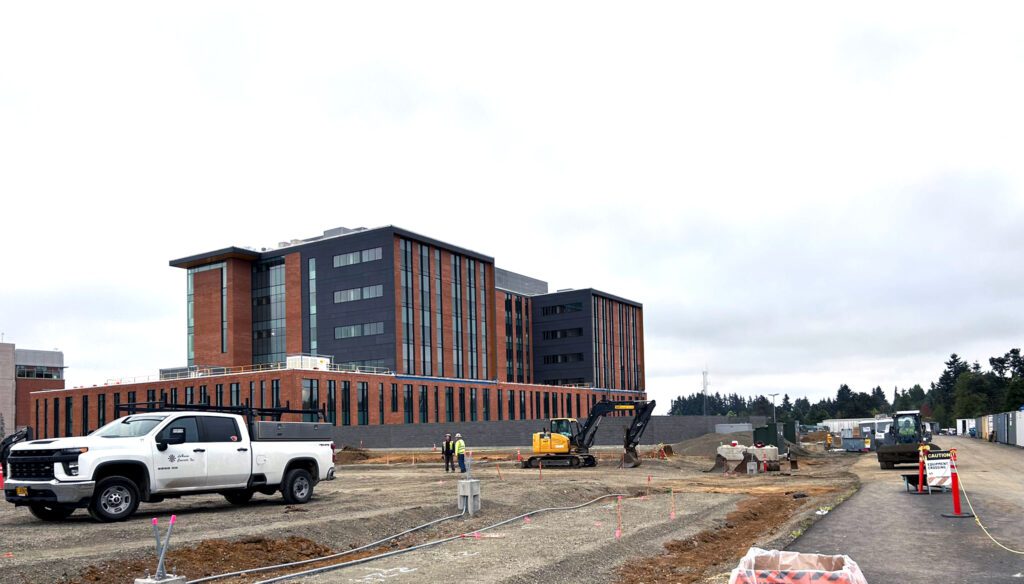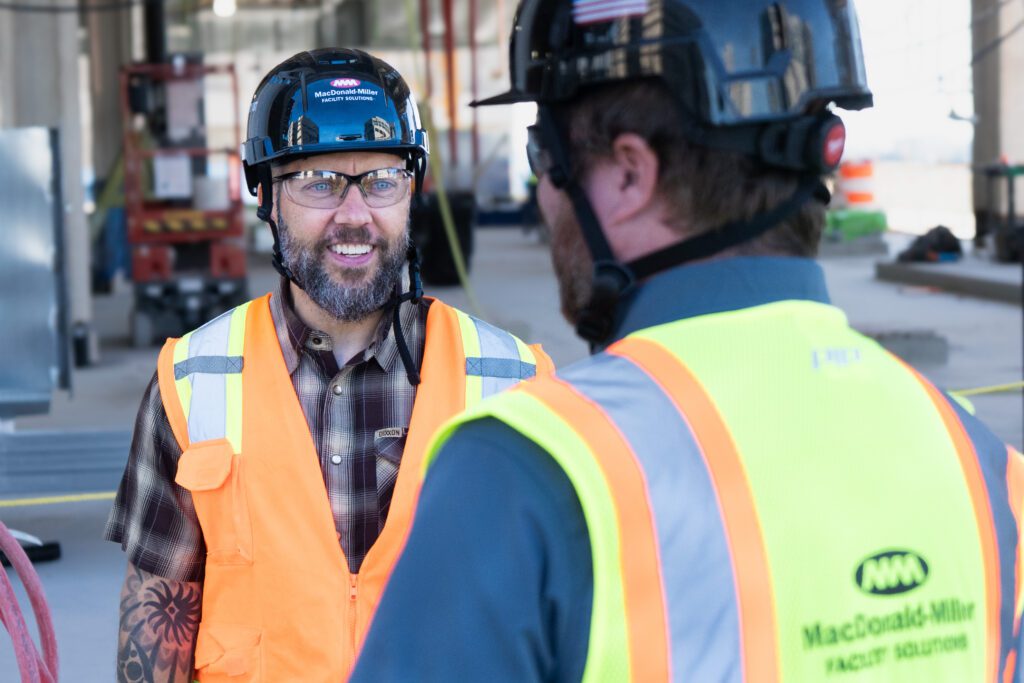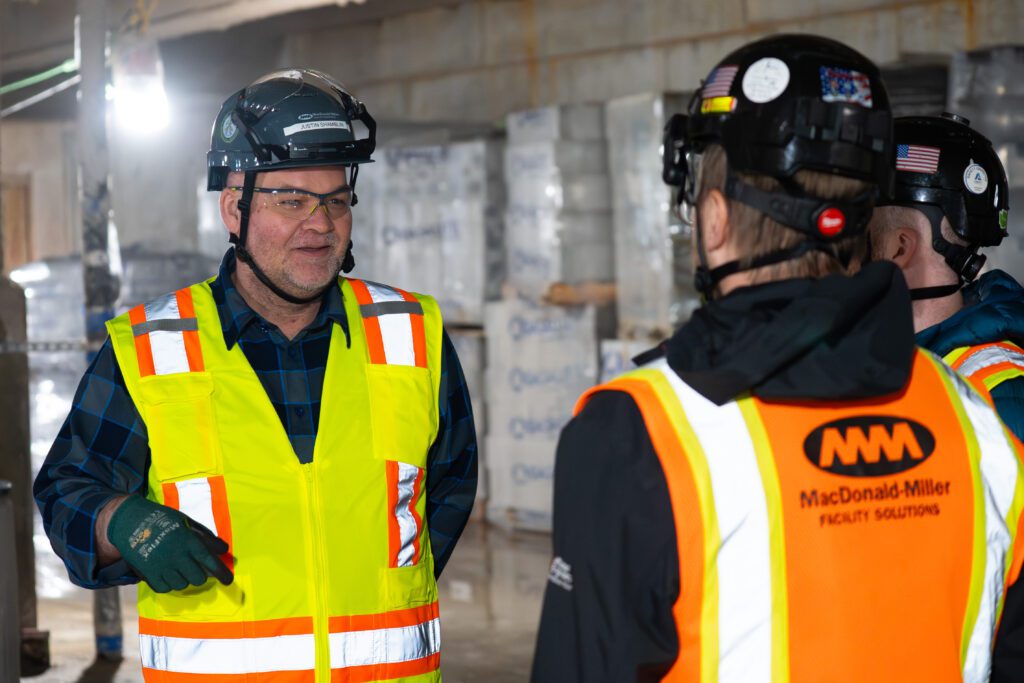Commitment to Sustainability
MacDonald-Miller signs the MEP 2040 Challenge in latest environmental sustainability effort.
The passion MacDonald-Miller has about mechanical systems has always been part of the company’s holistic approach to serving its customers throughout the Pacific Northwest. Ben Gezon, engineering principal for MacDonald-Miller, said signing the commitment reflects the company’s existing priorities. “We are setting up systems to achieve these recognized, measurable, and attainable goals. It helps us organize our efforts that are already aligned with the community.”
By adopting the MEP 2040 commitment, MacDonald-Miller confirms that it will:
- Establish a company plan to reduce and measure operational and embodied carbon across Mechanical, Electrical and Plumbing (MEP) systems on all projects, targeting zero carbon emissions by 2040.
- Request low-global warming potential refrigerants when designing systems to reduce or eliminate greenhouse gas emission from refrigerants.
- Request Environmental Product Declarations in project specifications for MEP system components.
- Participate in forums to share lessons learned and contribute to the growing body of knowledge.
“Our commitment to leading the industry starts with our vision to demonstrate that every project has a path to a carbon neutral outcome,” says Reagan J. Perry, MacDonald-Miller’s president of construction.
Perry said the company’s role is to show clients what is possible, how they can afford to create sustainable systems, and demonstrate the return on investment they will achieve. MacDonald-Miller employs a team of world-class engineers who design creative energy-saving solutions for clients. “Engineering isn’t something we do just to facilitate construction; it casts the vision for every project,” he said.
MacDonald-Miller is working on several major sustainability projects for clients in the Pacific Northwest, including Microsoft’s carbon-free energy center on the nearly completed campus expansion. MacDonald-Miller helped design and install the thermal energy center system that provides heating and cooling for 18 buildings by using 875 geothermal wells drilled 550 feet into the ground and utilizes the constant temperatures below the Earth’s surface to heat and cool the buildings. The 100% electric system incorporates heat pumps, chillers, thermal energy storage and 220 miles of pipe running throughout the campus in Redmond, Wash.
Another impactful project is the ongoing design of a district energy system at the Providence-Swedish Medical Center First Hill campus in Seattle. This district energy system is designed to share energy between the hospital and nearby buildings that need more heating or cooling. By using ambient piping loops piped between buildings near its hospital, the hospital can reduce wasted energy by capturing waste heat and using it to supplement its facilities without consuming additional energy or emitting waste heat into the environment. Hospitals are the second largest consumers of energy and healthcare contributes nearly 10% of its greenhouse gases through solid particle emissions. This project contributes to Providence-Swedish’s ongoing carbon neutrality efforts. This is an efficient way to conserve energy and use all the heat being paid for, versus wasting heat into the atmosphere (which is an important effort to combat the climate crisis).
MacDonald-Miller’s Washington technology clients aren’t the only ones tackling large net-zero carbon goals. Lewis & Clark College in Portland, Ore., is exploring a geo-well and other heat pump options on its existing buildings and potential underground ambient loops to serve an energy district similar to what Microsoft is doing to make its campus carbon neutral by 2040.
Learn more about our commitment: Sustainability
